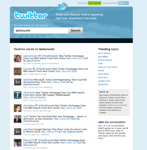SHARE
Blogs and Articles: How Each Impacts Your Website Content
Fresh website content keeps your site relevant with search engines and interesting to returning users. This means offering up new information regularly to keep your clients and followers engaged. Website content can take different forms; two popular forms are blogs and articles.
Blogs Lead Readers On Their Own Information Path
Blogs are fun to read. They feed our need for lots of information without the burden of too many words. Blogs give us a chance to move on to new but related content with links embedded throughout the text. A less formal writing style and frequently more opinion based content, blogs help the casual reader understand the message. They can be funny and really subjective. Blogs start conversations as readers can add comments that encourages interaction between the fellow readers and the author.
5 Things To Remember When Writing Your Blogs. Keep Them:
- Dynamic (text linked to related content to keep users on your site longer)
- Conversational (less formal language helps you connect with your reader)
- Short (less text keeps your reader interested until you’ve made your point)
- Concise (short sentences work well with short attention spans)
- Simply Written (simple language engages readers of all reading levels)
Why You Should Care About Your Blog?
Blogs create a user experience on your website. They can keep users engaged, hopefully long enough that they’ll buy something, contact you, or come back later. Hopefully you haven't been avoiding starting a blog on our business website as this will definitely impact you online.
Learn how to use your business blog to help you attract new business and keep customers retuning to your site.
How Articles Differ From Blogs
Articles add their own benefits to a website. They are especially useful when you need to explain a concept in more detail. Sometimes a few paragraphs of chatty text just doesn’t cut it. Compared to the relative freedom of blog writing, you can think of articles as the “responsible older sibling”. An article is a more formally written piece. Its content is static (although you can insert your article into a blog template, it still does not provide the same dynamic elements of a blog. Formal language also means more words that can be written for a higher level of reader based on your target audience.
3 Clues That You Are Writing an Article:
- Formal Writing Style (fact based using more formal language and sentence structure)
- Topic Focussed (you can delve into the details and readers are prepared for it)
- Written in Second or Third person (No I’s or we’s in an article)
While blogs provide an easier style to generate content quickly, don’t discount investing time in articles. Articles do serve a purpose, especially to your loyal followers, who are genuinely interested in what your business is about and what you have to say.
Ultimately, knowing how much to write in a certain style is dependent on your audience. Understand your audience and you’ll know what style of writing they’ll want to read; keep them in mind when planning all your website content.
Too busy to even think about writing a blog or an article, find out how copywriters can help you keep your website content interesting to attract new and returning visitors to your website.
Learn Ways to Be Found Fast and Sell More Online
More visitors to your page means more potential online sales. Here’s a FREE resource to aid in boosting your online exposure. Learn SEO copywriting techniques so you’re found online first.
Topics
- Content Creation (297)
- Growth-Driven Design Websites (166)
- Inbound Marketing (139)
- Sales Growth (117)
- Tangible Words (110)
- Search Engine Optimization (85)
- Social Media Marketing (83)
- Blogging for Business (75)
- Economic Development (65)
- Hubspot (61)
- Events & Training (60)
- Company Growth Podcast (49)
- Manufacturing (47)
- Tourism (46)
- Email Marketing (41)
- Case Stories (39)
- Testimonials & Client Feedback (36)
- Education and SaaS (25)
- Google (21)
- Careers (16)
- FAQ (16)
- Inbound Marketing Agency (16)
- Alysha Dominico (13)
- Cool Companies (12)
- Associations (7)
- Food and Beverage (7)
TW Blog Sign-Up
Learn more about how to grow your business and improve your sales team process.




